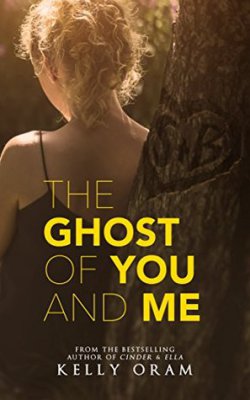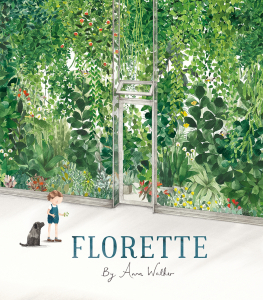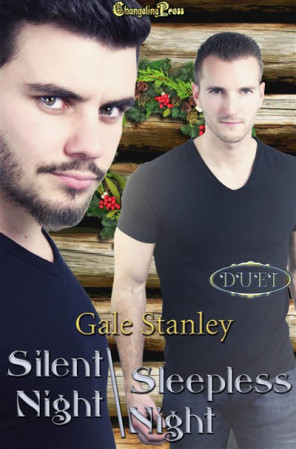
All told, I’ll have read forty books (maybe forty-one) between January and December of 2017. I’d like to pay my respects to a few that moved me most by attempting to convince you to read them and pass along the greatest, and possibly oldest, tradition there has ever been. The telling and receiving of tales.
I had gone to the trouble of rating each book and creating a list, a countdown in standard internet fashion, of least favorite to favorite. And it was my original intention to share that indulgence along with a little blurb about each book. I’ve decided to spare you from that and go right to the meat – to produce actual content that is worth reading a bit, particularly if you are inclined to love books. The star ratings were, at the time, my way of keeping track of which books I had the most fun reading, and were not necessarily a commentary or judgement on their overall literary value. I will leave that to people who think they are qualified to know such things. All I can say is if I enjoyed a book and what it was I did or didn’t enjoy about it.
I went out of my way to jump genre quite a bit in an effort to give myself as much experience with storytelling as possible in a very small amount of time. If I was successful or not, (well maybe you’ll read my first book when it’s done and tell me), but I discovered a few important things about myself and about books and authors by reading all kinds of stuff (fiction mostly). The first and most applicable here is that I mostly just like a good story and don’t care for exceptionally long or “epic” books. There are some exceptions (one of which is noted below), but as an example (and I’ll try not to beat the Stephen King horse too much here) I’ve had quite a few people recommend SK’s “The Stand” over the years and finally decided this year was a good time to dig into the apocalyptic-super-flu epic. I had met my goal of thirty books for the year by mid November and went ahead and plucked that beast of my shelf (all 1,138 pages of the ‘complete and uncut’ version) and dug in with great enthusiasm. I was actually kind of pleased to find that I didn’t care for it as much as everyone seemed to think I would. I did enjoy it, and much of it was great fun, but far from King’s best work. I’m sure this is some kind of blasphemy in the context of Stephen King fandom but I enjoyed his more recent “Revival” much more. There’s no accounting for taste, I suppose.
I don’t have a “favorite book of the year”. I have a cluster of four or five books that blew the brains right out the back of my head for one reason or another that will eternally sit on a rainy Sunday in my heart forever. Those of you who absolutely adore books know exactly what I’m talking about. It’s a Sunday, or a Tuesday. You’ve got nowhere to be, and no one who is fussing for a piece or your life. There’s a couch or a chair by a window. Outside the rain is gently pattering against the town streets as cars go by. There you sit under a lap blanket with a cup of tea or coffee, or maybe even a hot toddy, and you enter another world, another life entirely, and no matter how much of a drama, adventure, horror, or tragedy there is in that other world, it is an absolute joy to plunge into its depths…
 “On Writing” by Stephen King, 2000
“On Writing” by Stephen King, 2000
“It starts with this: put your desk in the corner, and every time you sit down there to write, remind yourself why it isn’t in the middle of the room. Life isn’t a support system for art. It’s the other way around.”
It may be worth noting briefly that I was only a very casual reader before March, 2017, when I was in the middle of reading Stephen King’s “On Writing”, upon which I decided I was going to read ALL the books and even write a few. “On Writing” was the most important book I read this year but I’m not going to spend much time with it here as it was a catalyst for inspiration and may hold little interest outside those who want advice about writing books, or would like to know more about Stephen King and his family’s story. I’ll leave you with what I’ve said to a few friends after turning it’s last page. It is an endearing and delightful read full of warmth, good humor, and grounded insight. Consider it highly recommended.
 “The Haunting of Hill House” by Shirley Jackson, 1959
“The Haunting of Hill House” by Shirley Jackson, 1959
“No live organism can continue for long to exist sanely under conditions of absolute reality; even larks and katydids are supposed, by some, to dream. Hill House, not sane, stood by itself against its hills, holding darkness within; it had stood so for eighty years and might stand for eighty more. Within, walls continued upright, bricks met neatly, floors were firm, and doors were sensibly shut; silence lay steadily against the wood and stone of Hill House, and whatever walked there, walked alone.”
That’s the opening paragraph. Go ahead. Close this web page and go read it. I won’t even be mad about it. A group of paranormal sensitives and experts are invited to stay in a notorious haunted house to observe and document its strange phenomena. The characters are tightly written and this book is just straight-up spooky fun that will keep you reading into the bleary eyed wee hours of the night. I had to make myself put this book down to adult. It’s almost dumb how good of a time I had reading it. A scary camp fire story at its absolute best. Treat yourself and take a vacation in Hill House.

“The Road” by Cormac McCarthy, 2006
“He walked out in the gray light and stood and he saw for a brief moment the absolute truth of the world. The cold relentless circling of the intestate earth. Darkness implacable. The blind dogs of the sun in their running. The crushing black vacuum of the universe. And somewhere two hunted animals trembling like ground-foxes in their cover. Borrowed time and borrowed world and borrowed eyes with which to sorrow it.”
This had been sitting on my shelf for quite awhile before I made my way to it and once I did I understood immediately why Cormac McCarthy is such a big deal. I tried to read All the Pretty Horses a few months later and it wasn’t really my jam but the man can write some serious shit for sure. In The Road his pacing is exceptional, and the vividness and atmosphere of this post-apocalyptic opera is just utterly stunning. This is the kind of book that makes me want to write books. This is the kind of book that reminds me how powerful words can be in the hands (or word processor) of a skilled craftsman. It is utterly grim, stark, and grey. Two specks of life lurk their way across a dead land looking for scraps left behind and fleeting moments of warmth. This is some dismal shit but absolutely riveting and cosmically powerful.
 “To A God Unknown” by John Steinbeck, 1933
“To A God Unknown” by John Steinbeck, 1933
“He went to his own dark house and lighted the lamps and set fire in the stove. The clock wound by Elizabeth still ticked, storing in its spring the pressure of her hand, and the wool socks she had hung to dry over the stove screen were still damp. These were vital parts of Elizabeth that were not dead yet. Joseph pondered slowly over it. Life cannot be cut off quickly. One cannot be dead until the things he changed are dead. His effect is the only evidence of his life. While there remains even a plaintive memory, a person cannot be cut off, dead. And he thought, “It’s a long slow process for a human to die. We kill a cow, and it is dead as soon as the meat is eaten, but a man’s life dies as a commotion in a still pool dies, in little waves, spreading and growing back toward stillness.”
This book changed the way I thought about books. It changed what I understood about stories and what kind of stories I liked. It changed the way I viewed writing. It changed the way I viewed masculinity, my relationship with family, my relationship with nature, my mortality. It also made me fall helplessly in love with the writing of John Steinbeck. This story is not an action packed adventure or a compulsive page turner. This is a slow burn of a book in which every single page leads to the smoking cinders of it’s final turn. In my most humble, poorly read opinion, it is simply a tragically romantic master stroke. If I had to pick a favorite book… well, favorites change, but first loves stay the same.
 “New York” by Edward Rutherfurd, 2009
“New York” by Edward Rutherfurd, 2009
“A New Yorker can never be beat, Gorham, because he gets right back up again. Remember that.”
So I mentioned I don’t care for long winded “epics,” but life is all about the exceptions, isn’t it? I have a soft spot for history and historical fiction. Especially historical works that tie the distant past coherently into the present so that the distance between those two ideas becomes traversable. I also love New York City. There is nothing particularly profound about Rutherfurd’s writing style other than it doesn’t get in the way of enjoying the story, the hallmark of a reasonably competent writer if you were to ask me. I try to tread carefully when it comes to criticizing authors, as writing any book is an accomplishment, so I’m not going to name any names, but if you’ve read enough books you’ll know exactly what I’m talking about. In addition to the forty books I read this year, there were a handful that I never finished because it seemed as if the author was taking part in some contest to show off how big their vocabulary was or how many words they could cram into a sentence. Unfortunately, this apparent contest shows up disproportionately in “scholarly” work and basically makes me want to punch a puppy. A good friend of mine, also an avid reader, describes this phenomenon as “Fart Sniffy”. I imagine a group of high society snobs around a parlor with oak tables and velvet tapestries wafting each others farts as if they were sipping fine wine. This unfortunate garbage has a way of leaving it’s stink all over what would normally be very interesting subject matter. If I had a dollar for every time I picked up a book about Ancient Egypt, or the fall of Rome, and could detect the pungent odor of pretension within the first twenty five words, wafting sourly out of those bonded and wasted trees, well, I’d probably be sipping fine wine in a parlor somewhere and not banging away behind a five-year-old MAC on a table in the corner of my living room. Do you see what I did there? At any rate (that’s my rant for this blog post), Edward Rutherfurd excels in delivering well researched material while keeping the fun moving. At over eight-hundred pages, this four century spanning historical epic just boogies right along. If I have any criticism of this book, it’s that Rutherfurd makes characters and stories so vividly enjoyable that it actually could have been longer. I doubt that I have ever said this about a book. If you dig history, and if you dig The Big Apple, grab a copy, curl up and take a raft down the river of time. It’s a sweet ride.
Some other “must reads”…
“The Island of Dr. Moreau” by H. G. Wells, 1896
“A Wizard of Earthsea” by Ursula K. Le Guin, 1968
“I Am Legend” by Richard Matheson, 1954
“Breakfast of Champions” by Kurt Vonnegut Jr., 1973
“Foundation” by Isaac Asimov, 1951
“Born A Crime” by Trevor Noah, 2016
“The Stranger” by Albert Camus, 1942
Check out my Reading Log for this year’s complete list. There were really only one or two books on this list that I did not enjoy and wouldn’t recommend. But as I’ve said, writing any book is an accomplishment, and I’ll leave it at that. I’d love to hear your thoughts about any of the above mentioned books or others on the complete list (and I’m always open for recommendations). Drop me a line, and thanks for visiting Eugene Kane Fiction.
Please Share and Subscribe, if it do ya’.
Advertisements Share this:





